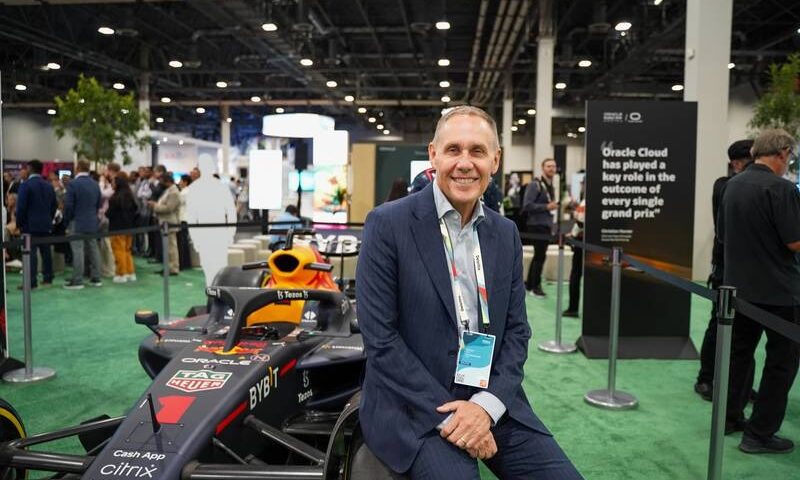Oracle has plans to add more cloud regions in Europe, the Middle East, and Africa, with the UAE and Saudi Arabia leading contenders thanks to their rapid adoption of the technology, according to the company’s top regional executive. High digital adoption rates and a strong government push are attractive drivers for growth, the executive claims.
The two largest economies in the Arab world also stand out because of the support given to innovation by their governments, according to Richard Smith, executive vice president of technology for Oracle’s Emea region, who spoke with The National.
“Across Emea, we have priorities. On the other hand, [the UAE and Saudi Arabia] are unquestionably very high growth regions,” he said on Wednesday in Las Vegas, outside the Oracle CloudWorld convention.
“Government agendas for digitisation are significant drivers for cloud adoption, which is one of the things that is quite powerful in the region.
And if you look at Saudi Arabia or the United Arab Emirates, everyone talks about social and citizen services, which is what is causing the cloud to be adopted and deployed so quickly.
According to Mr. Smith, Texas-based Oracle continues to make “very, very big” investments to expand the capacity of its data centers while making sure that these investments are in line with local social, governmental, and security goals.
Making sure that the alliances we are forming are in line with the national ambitions that many of those countries have is one of the main obstacles, not the opportunity itself.
The usage of cloud technology is expanding in the Middle East as young consumers’ interest in technology grows and the digital landscape changes.
This has encouraged international cloud service providers to take advantage of the region’s potential, particularly in the UAE and Saudi Arabia.
As part of their ambitions for economic diversification, the two nations are placing a lot of emphasis on technology and innovation.
A total of five Oracle cloud regions will eventually be shared by them.
A cloud region is an area that contains a cloud data center, which is a physical facility that holds the IT infrastructure needed to operate applications and related services as well as manage and store relevant data.
The first cloud area in the Middle East, which will open in Jeddah in 2020, was welcomed by the monarchy, while a second cloud zone in Riyadh was also announced at the Leap technology conference earlier this year. According to chief information officer Jae Evans, a third of the future metropolis of Neom will go live “soon.”
The cloud zones in Dubai and Abu Dhabi got going in September 2020 and November 2021, respectively.
A quarter of Oracle’s 45 public cloud regions, spread over 23 countries, are in the Middle East.
Other international giants beyond Oracle have opened cloud and data centers in the Middle East, including Microsoft, Amazon, IBM, and Alibaba Cloud.
In terms of acceptance and development, the region is “certainly among some of the fastest in the world.”
To guarantee that services meet needs, Oracle maintains tight connections with regional governments.
For instance, the business collaborates “very closely” with Saudi Arabia’s cybersecurity agency before the issuance of new legislation.
So that we can comprehend how they think and what they want, Mr. Smith added.
“A joint effort of that nature is really effective. And I do observe a significant desire in the Middle East to use that strategy. Other nations can differ slightly from ours.
According to Cherian Varghese, senior vice president of technology for small and medium businesses at Oracle, the company’s cloud computing services are also advantageous to these businesses, who make up more than a quarter of its clients in Emea.
The company has about 315,000 SMB customers around the world.



